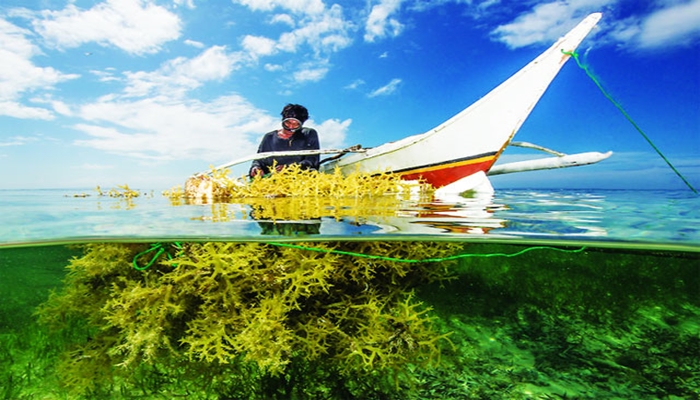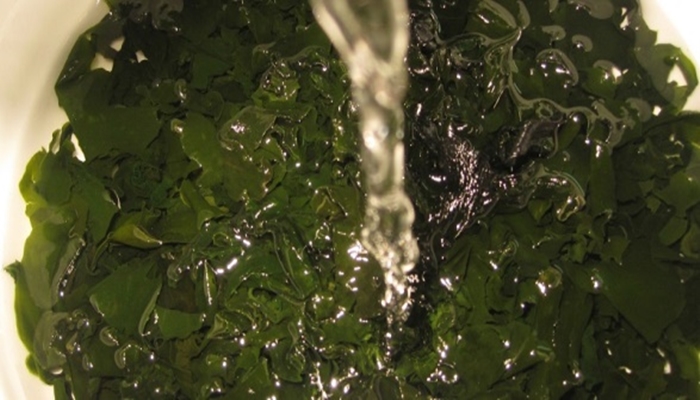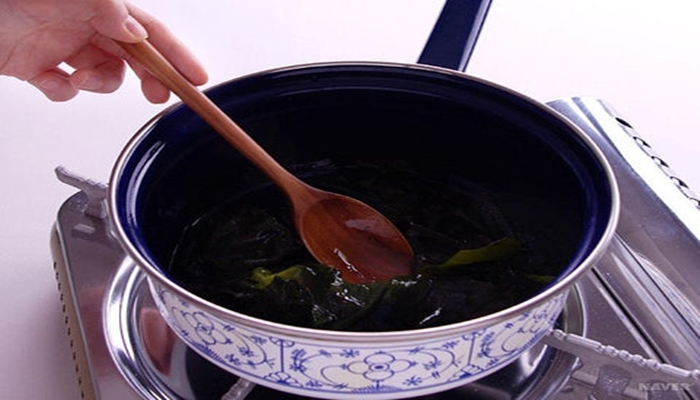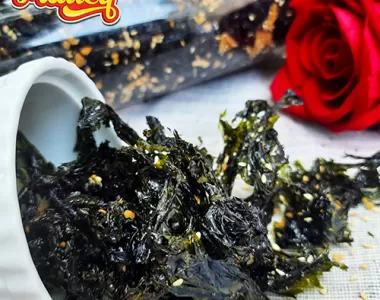Important notes when using and processing seaweed
1. What is seaweed?
Seaweed, also known as kelp, is used for marine organisms, which are also rich in nutrients. Seaweed has a variety of types such as red algae, green algae and brown algae. Seaweed can live in both saltwater and brackish water environments. They grow on coral reefs or on cliffs, or can grow in deep water provided that there is sunlight for photosynthesis. Seaweed has gradually become popular in many countries around the world. (According to Wikipedia)

Seaweed has been consumed as a specialty food since 10,000 years ago in China, Korea and Japan
2. Nutritional content of seaweed
The amount of nutrients in seaweed can vary depending on the habitat and classification of seaweed. However, basically, in 100g of seaweed there will be:
- Carbs: 10g, Protein: 2g, Fat: 1g.
- Fiber Optic: 35% RDI, Iodine: 65% RDI.
- Mg: 180% of the RDI, Mn: 70% of the RDI, Fe: 20% of the RDI.
- Na: 70% RDI, Ca: 60% RDI, K: 45% RDI.
- Folate: 50% of the RDI, Vitamin K: 80% of the RDI.
Besides, seaweed also contains superior nutrients compared to other foods such as: protein 3 times higher than beef; Beta-Carotene 15 times more than carrots; Vitamin B12 is 4 times more than cheese and calcium is 5 times more than fresh cow's milk.
3. Important notes when processing seaweed
a) Do not soak in water for too long
For dried or fresh seaweed, before processing, we also need to soak it in water so that the seaweed blooms evenly or reduces the salty taste. However, if you soak it for too long, the nutrients in the seaweed will be easily lost, so you should only soak the seaweed for about 5-10 minutes, then squeeze it lightly with salt and wash it to dry.

b) Do not cook for too long
Any food that is cooked for too long is not good because when cooking at too high a temperature for a long time, most of the nutrients will be lost. Therefore, you should only cook the seaweed until it is cooked

c) Deodorize the fishy smell with spices
Seaweed has a characteristic natural fishy taste that is quite picky. Therefore, people often use sesame oil in processing to mask this fishy smell. However, in order not to reduce the coolness of the seaweed, we should only use a small amount of sesame oil to enhance the aroma of the dish.

3. Who should be careful when using seaweed?
a) People with thyroid problems
Seaweed contains an abundant amount of iodine, which is essential for the elderly and children. But if you regularly use seaweed in large amounts, it will cause an excess of iodine, leading to the risk of hyperthyroidism and metabolic disorders.
Besides, people with thyroid-related diseases should consult their doctor before using
b) People who are in the process of losing weight and children
For adults, reasonable consumption is from 2-3 times/week; children 2 times/week; no more than 100g each time. Because if used in excess of the above limit for a long time, it will cause metabolic disorders due to overloaded digestive system.











